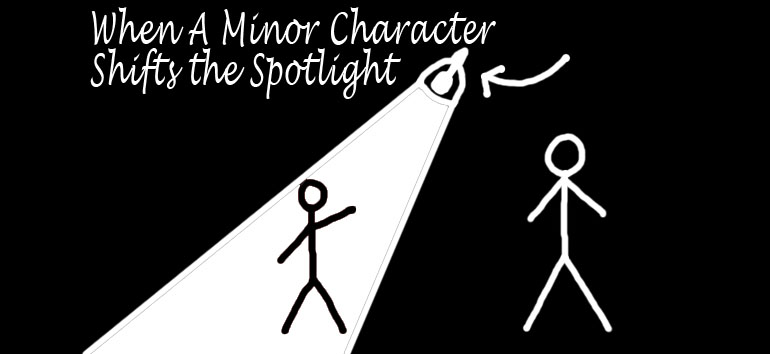What to do when a minor character shifts the spotlight

Some writers outline their novels and somehow they strictly stick to those outlines. However, when I outline I stick to it only roughly. The story ends up taking the lead… instead of the other way around. That is what happened recently when I was working to wrap up the final arc in The Phantom’s Blade.
Following events in Key of Living Fire, The Phantom’s Blade is predominantly Ilfedo’s story. The city of Dresdyn is heavy on his mind and he sets forth on an expedition to lead the people out of that underground world and bring them to his homeland. But as we know from the previous novel the captain of the city guard has been possessed by some kind of ghost being (or as Ilfedo calls it, a demon). The story should pivot around Ilfedo and the captain as Ilfedo seeks to stop his enslaving the people of Dresdyn.
But as I wrote this portion of the story a minor character introduced herself. Neither hero nor villain she grabbed the reins and steered the story in a different direction than I had intended. Some writers would have taken the reins back in order to stick to the outline. From experience though, I have learned that a minor character can enrich the story world. I let the minor character shift the spotlight and the result was a better story… Which I look forward to sharing with you when the book comes out this Fall. 🙂
My humble recommendation is that the writing allow the minor personalities shine, thus allowing the story to evolve in unexpected ways. The results have always surprised me in a good way.
Question: What do you think of this “Seat of the Pants” approach to writing?

Not sticking strictly to the outline!? The horror!
Just kidding. I totally agree. Sometimes you have to allow the Holy Spirit to write through you. And His ideas are always better than ours.
🙂 I truly believe we are born to write, or we are not. God has given each of us different gifts… we simply need to work hard and follow our God-given vision to reap the fruit.
Well said
🙂
I have really enjoyed letting the story go where it needs to go. I like a general outline that I can change whenever I want to. You can always revise later, but when the Lord is moving, and a story is coming to life, I don’t want to kill it with all the “rules.”
That’s interesting because I have sometimes used a general outline as well. I find an outline to be restrictive, but if it is continuously altered for character changes and unexpected plot twists, a general outline can work.
Well said. I have the outline mainly to keep track of the ideas that come along while I’m writing, but I have the freedom to change it when I want to.